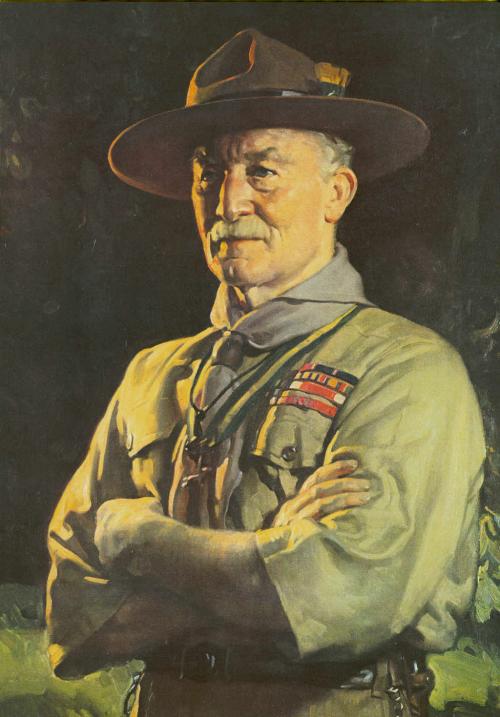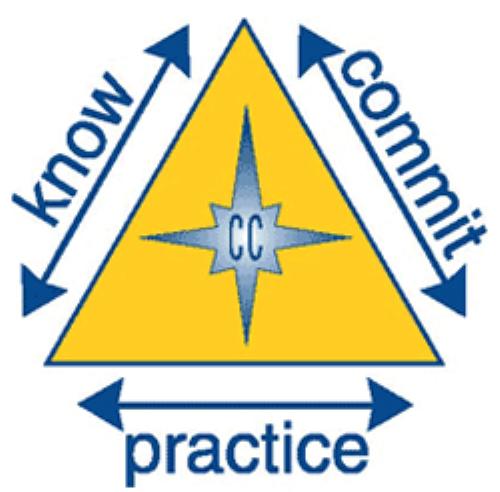
ORIGINS (BeAScout.org)
In 1930, Cub Scouting was formally launched, with 5,102 boys registered at the end of that first year. By 1933 the time had come to promote Cub Scouting throughout the country as a part of Scouting. All experimental restrictions were removed, and the first national director of Cub Scouting was appointed.
Cub Scouting in America is different from the younger-boy programs of other countries because it is centered in the home and neighborhood. With the encouragement of family and leaders, boys enjoy a program that covers a wide variety of interesting things. It suggests activities that boys enjoy doing on their own when adults are not supervising them. These activities are particularly suited to boys of Cub Scout age and are different from those they will encounter in Boy Scouting.
A strong influence from Kipling's Jungle Book remains today. The terms "Law of the Pack," "Akela," "Wolf Cub," "grand howl," "den," and "pack" all come from the Jungle Book. At the same time, the Gold and Silver Arrow Points, Webelos emblem, and Arrow of Light emblem are taken from our American Indian heritage.

Lord Baden-Powell envisioned this program as a "game with a purpose." While it may seem to outsiders that cubs are just having fun, it is the design of the program to encourage character development through games, crafts, service projects, ceremonies and many other methods. Further character development should extend into every aspect of a boy's life-- the home, school, civic and religious organizations. In den meetings, pack events and outings, Cub Scout leaders attempt to introduce, encourage and provide opportunities for cubs to use and exercise these principles.
The Cub Scout Motto - Do Your Best.
The 12 Core Values of Cub Scouting are:
- Citizenship
- Compassion
- Cooperation
- Courage
- Faith
- Health and Fitness
- Honesty
- Perseverance
- Positive Attitude
- Resourcefulness
- Respect
- Responsibility
The 10 purposes of Cub Scouting are:
- Character Development
- Spiritual Growth
- Good Citizenship
- Sportsmanship and Fitness
- Family Understanding
- Respectful Relationships
- Personal Achievement
- Friendly Service
- Fun and Adventure
- Preparation for Boy Scouts

Cub Scout Values
As a Cub Scout, you do your best and you help others. You learn the Cub Scout Promise and the Law of the Pack. You also learn what they mean.
The Cub Scout Promise
I promise to do my best
To do my duty to God and my country,
To help other people, and
To obey the Law of the Pack.
It's important not just to say the Promise, but to know what it means.
I promise
When you say "I promise," it means you will do your best to keep your word. It is very important to keep your promises and to stand by the things you say. This shows people that they can trust you and rely on you.
To do my best
Giving your best effort is right and honest. Always remember that your best is not the same as someone else's best. Doing the best you can is more important than trying to be better than someone else.
To do my duty to God
Doing what is right and not doing things we know are wrong is one way to do our duty to God. Another way is to practice our religion at home and at our place of worship. We should respect other people's religious beliefs even if they are different from our own.
And my country
Duty to country starts with being a good citizen. This means caring about the people in your community and helping people. Good citizenship also means obeying the law. It means standing up for the rights of all Americans. Good citizens also take care of America's land, water, and natural places.
To help other people
Helping other people means doing things to help those around you—your family, friends, classmates, neighbors, and others in your community—without having to be told.
And to obey the Law of the Pack
Besides obeying the Law of the Pack (below), you should obey the laws in your community and state, the rules in your school, the rules at home, and the code of conduct in your den.
The Law of the Pack
The Cub Scout follows Akela.
The Cub Scout helps the pack go.
The pack helps the Cub Scout grow.
The Cub Scout gives goodwill.
Just as the parts of the Cub Scout Promise have a meaning, each part of the Law of the Pack has a meaning.
The Cub Scout follows Akela
Akela means "good leader." To a Cub Scout, Akela may be a parent, a teacher, a religious leader, a Cub Scout leader, or another guide. A Cub Scout should choose a good leader to follow.
The Cub Scout helps the pack go
Your pack needs you to be a good member. A good member goes to all meetings, follows the leaders, and pitches in to make the pack better. Being a good member of the pack means doing your share, and sometimes a little more, to help the pack.
The pack helps the Cub Scout grow
With the leaders and Cub Scouts all working together, the pack helps you grow into a better person. You will learn new things and new skills. You'll learn the right way to do the right things. And along the way, you will help others.
The Cub Scout gives goodwill
Doing good things for others doesn't just make them happy. It also gives them the desire (or the "will") to do good things for others in turn. In this way, the good things you do for others make ripples that pass the goodwill from person to person. The spirit of helpfulness and good cheer spreads from you to others in your neighborhood.
Source: Boy Scouts of America